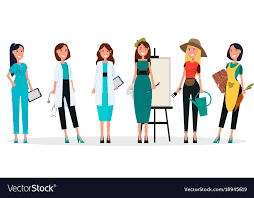I was watching the Ethan Hawke sorta documentary about Newman and Woodward last evening. Ethan did a pretty good job, though the pacing is a bit slow and it’s a kind of name droppish with all his friends doing voiceovers – watch it, ’cause I don’t wanna ‘splain more.
Because that’s not what I’m here to talk about. I’d have to watch it again to see if it was the director Paul Schraeder or maybe Martin Ritt who said when the movie Hud came out in 1963, they got letters saying Hud was a hero, the old man was a grump and the kid was a wimp. They were surprised, but whoever said this then added until those same people elected Reagan in ’80.
Well, I must admit I’ve never watched the entirety of Hud, tho’ I will fix that this week since it’s streaming on the Roku channel. But I saw enough of it back in the day to know that Hud was, to be generous, the beginning of the anti-hero. That archetype was picked up and run with by Dustin Hoffman, Jack Nicholson, Al Pacino and the most emblematic of them all, Clint Eastwood. So Paul Newman, who had toyed with bad guy roles before Hud, started the trend.
How were his reviews at the time? A walk back through movie history says Sidney Poitier beat him out for the Oscar by playing a good guy in Lilies of the Field. Guess good guys – at least back then – did finish first. But the genre was just getting started, and his competition started sweeping the Oscars with roles like Jake Gittes, Michael Corleone and Harry Callahan. Paul was just a little ahead the curve.
But that’s not what I’m here to talk about. I’m still thinking about the end of patriarchy motif I started with the Bodily Control post. Is it possible to correlate the beginning of the end of male domination with the early days of the Vietnam War? Hey, let’s talk about that some.
Hud came out in ’63 when the war hadn’t really taken off yet. The Gulf of Tonkin resolution wasn’t ’til August of ’64 and the increase in troops didn’t occur until July of ’65. Nonetheless, there was awareness of the war, and nearly half a million men had been drafted in those three years. Casualties were low in ’63 and ’64, but I think everyone knew, or had a sense of what was coming.
Hendrik Hertzberg was at Harvard in ’63 and wrote a review of the movie. Here’s a quote from that review:
Just how devastating a critique the film is can be seen in the reactions of, say, high school students to the character of Hud. He is a dynamic, attractive human being. But judged by his actions, he is an unmitigated bastard, motivated solely out of self interest: he sleeps with other men’s wives, he drives his Cadillac over flower beds, he tries to have his father declared incompetent so that he can get control of the old man’s property. Yet high school students have adopted him as a hero; they admire his bravado, his coolness, and they either ignore his amorality or admire that, too.
Interesting that back in ’63 it was noted by a guy who went on to write for The New Yorker that high school students thought Hud was cool. Not college students. So that puts the age at, say, guys born in 1947 to 1949. They would be subjected to the draft in ’65 to ’67.
Aha! So these were the guys primed to self-absorption and then shame when they weren’t able to live up to the image set by their fathers. Long hair. Bell bottom pants. Musicians are the heroes now. Remember? Protesting, burning draft cards and fleeing to Canada put these guys in a completely different category than their fathers, who purportedly went willingly to war and did their duty. At least that’s how it went in the movies, right? And isn’t that how our popular perceptions are formed?
So that says to me that the beginning of the end for patriarchy came earlier than we ever thought. I’d argue what we’re seeing now is the last gasp of that death. If women rule, and they likely will soon, how are things likely to change?
First: women will take over the professions. There are now more law and med students than men. Engineering lags behind, of course, and, sadly, I’m not sure that will ever change. But won’t it be enough that woman will run medicine, law, business and politics?
Second: once they take over politics, the laws will change again, with more balance toward work and family, reproductive and sexual rights, and frankly more balance toward results. There’s actually a name for this It’s called productivism, and it’s a new paradigm starting to get noticed. The old ways, run by male bean counters, aka MBAs, forgot that workers are consumers. So when they shipped all that production to China to save money on labor, they impoverished all those parts of the country that are now called red states. That was unsustainable, and it will only begin to change when women take over the country.
I’m really sorry to be the one to tell you guys, but you are toast. Get over it. Stay home and watch the kids. Forget ‘hold my beer’; now it’ll be ‘hold the baby: I’m changing the American workplace’. I just hope it isn’t too late.




